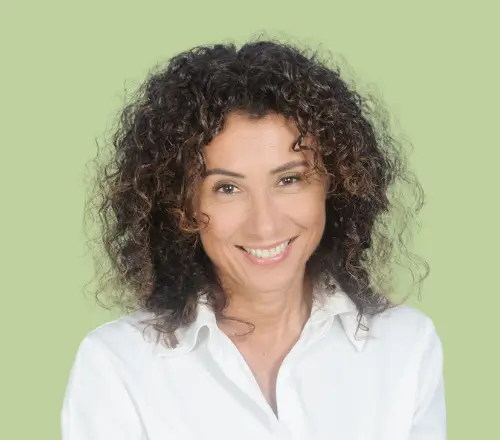Types of therapy
Relationship Difficulties
Relationship difficulties can arise from communication problems, unresolved conflicts, trust issues, or life changes. These challenges can affect romantic partnerships, friendships, or family relationships, leading to stress and emotional distance.

What do relationship difficulties feel like?
You may feel misunderstood, disconnected, or stuck in repeating arguments. Common feelings include frustration, sadness, resentment, or loneliness. Relationship issues can impact self-esteem, daily mood, and overall wellbeing.
How to overcome relationship difficulties with therapy
Couples or relationship therapy provides a safe space to explore issues, improve communication, and rebuild trust. Techniques such as the Gottman Method, emotion-focused therapy, and reflective listening help partners understand each other, manage conflict, and strengthen their connection.
Through relationship counselling, you can:
Improve communication and listening skills
Resolve conflicts and address underlying issues
Rebuild trust and emotional intimacy
Develop practical strategies for a healthier relationship
Step-by-step guide to managing relationship difficulties
Identify issues: Reflect on patterns and challenges in your relationship.
Seek professional support: Consult a therapist for couples or relationship counselling.
Engage in therapy: Practise communication and conflict resolution techniques.
Set shared goals: Work together to rebuild trust and connection.
Practise new skills: Apply what you learn in therapy to daily interactions.
Types of therapy
Relationship Difficulties
Relationship difficulties can arise from communication problems, unresolved conflicts, trust issues, or life changes. These challenges can affect romantic partnerships, friendships, or family relationships, leading to stress and emotional distance.

What do relationship difficulties feel like?
You may feel misunderstood, disconnected, or stuck in repeating arguments. Common feelings include frustration, sadness, resentment, or loneliness. Relationship issues can impact self-esteem, daily mood, and overall wellbeing.
How to overcome relationship difficulties with therapy
Couples or relationship therapy provides a safe space to explore issues, improve communication, and rebuild trust. Techniques such as the Gottman Method, emotion-focused therapy, and reflective listening help partners understand each other, manage conflict, and strengthen their connection.
Through relationship counselling, you can:
Improve communication and listening skills
Resolve conflicts and address underlying issues
Rebuild trust and emotional intimacy
Develop practical strategies for a healthier relationship
Step-by-step guide to managing relationship difficulties
Identify issues: Reflect on patterns and challenges in your relationship.
Seek professional support: Consult a therapist for couples or relationship counselling.
Engage in therapy: Practise communication and conflict resolution techniques.
Set shared goals: Work together to rebuild trust and connection.
Practise new skills: Apply what you learn in therapy to daily interactions.
Types of therapy
Relationship Difficulties
Relationship difficulties can arise from communication problems, unresolved conflicts, trust issues, or life changes. These challenges can affect romantic partnerships, friendships, or family relationships, leading to stress and emotional distance.

What do relationship difficulties feel like?
You may feel misunderstood, disconnected, or stuck in repeating arguments. Common feelings include frustration, sadness, resentment, or loneliness. Relationship issues can impact self-esteem, daily mood, and overall wellbeing.
How to overcome relationship difficulties with therapy
Couples or relationship therapy provides a safe space to explore issues, improve communication, and rebuild trust. Techniques such as the Gottman Method, emotion-focused therapy, and reflective listening help partners understand each other, manage conflict, and strengthen their connection.
Through relationship counselling, you can:
Improve communication and listening skills
Resolve conflicts and address underlying issues
Rebuild trust and emotional intimacy
Develop practical strategies for a healthier relationship
Step-by-step guide to managing relationship difficulties
Identify issues: Reflect on patterns and challenges in your relationship.
Seek professional support: Consult a therapist for couples or relationship counselling.
Engage in therapy: Practise communication and conflict resolution techniques.
Set shared goals: Work together to rebuild trust and connection.
Practise new skills: Apply what you learn in therapy to daily interactions.
Recommended HeadHealth Therapists
Recommended HeadHealth Therapists
Click here to view all counsellors, therapists and psychotherapists.
Click here to view all counsellors, therapists and psychotherapists.
Francesca (Fran) is an experienced integrative counsellor and accredited member of the NCPS. Fran offers a warm and compassionate space for adults navigating life’s challenges, drawing on her background in education, inclusion, and over three years of therapeutic practice.
More
Online
Phone Call

Ruby is a integrative therapist with over 1,500 clinical hours. Ruby brings a warm, down-to-earth approach to therapy, supporting adults experiencing anxiety, stress, and relationship challenges through personalised, evidence-based care.
More
Online
Phone Call

Victoria is a compassionate and skilled person-centred counsellor qualified since 2012. Victoria has helped over 450 clients and offers a safe and supportive space for adults navigating challenges including trauma, anxiety, depression, addiction, personality disorders, and more.
More
Online
Phone Call

Tyrene is a person-centred counsellor with over 450 clinical hours. Tyrene is dedicated to supporting clients from all backgrounds, offering a warm, safe space for those facing anxiety, depression, relationship challenges, identity issues, and more.
More
Online
Phone Call

Romina is a warm and collaborative therapist with over 400 successful sessions delivered. Her integrative approach blends psychodynamic and humanistic methods, creating a flexible, compassionate space for clients to deepen self-understanding and navigate change at their own pace.
More
Online
Phone Call

Ready to Take the Next Step?
Complete our short referral form, and we’ll match you with a qualified therapist who’s the right fit for you.
Complete our short referral form, and we’ll match you with a qualified therapist who’s the right fit for you.

Stay in the
loop
Join our community of mental health specialists with our monthly newsletter.
Stay in the
loop
Join our community of mental health specialists with our monthly newsletter.
Stay in the
loop
Join our community of mental health specialists with our monthly newsletter.





